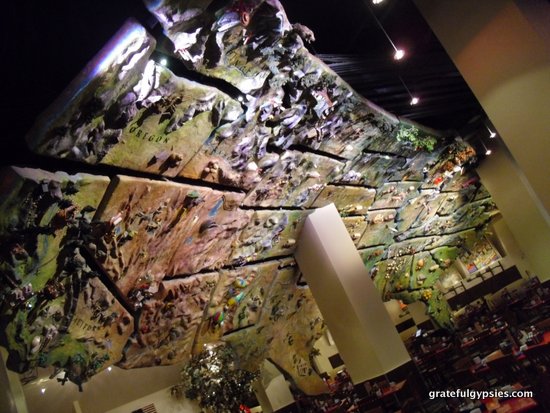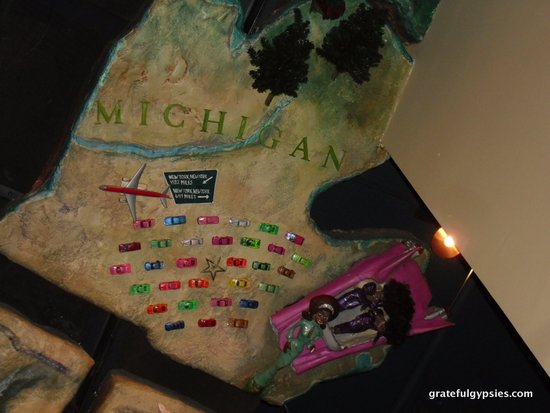All 50 US States in Chinese Posted by sasha on Jun 1, 2015 in Vocabulary
If you’re American, there’s one question you’ll always be asked from curious people in China when they find out you’re from the US of A:
“Which state are you from?”
(你是哪个州的? – nǐ shì nǎ ge zhōu de)
Although the average Chinese person on the street could only name 5-10 states, there is a Chinese name for each and every one. While the English names for Chinese provinces and cities are simple Romanizations of the words, the Chinese names for the 50 states are made by breaking the name down syllable by syllable. For each syllable, a Chinese character with a similar pronunciation is used. Or, in the case of states with North, South, West, or New in the name, the Chinese character for that word is used. You’ll see the Chinese word for “new” (新 – xīn) in the names of New Jersey, New Hampshire, and New Mexico, but interestingly enough, not in New York.

Which state are you from?
Sure, Americans tend to mispronounce Chinese words for cities/provinces – Chinese people are always correcting foreigners on their pronunciation of Shanghai, for example – but often times the Chinese words for American states or cities sound little to nothing like the English name. What state do you think is called “Qiáo zhì yà” in Chinese? How about “Bīn xī fǎ ní yǎ”? Those would be Georgia and Pennsylvania. Some names sound about the same, such as “Ā lā bā mǎ” and “Mì xī xī bǐ,” which you probably guessed are Alabama and Mississippi. My poor state (Michigan) can’t seem to make up its mind when it comes to its Chinese name, as two are commonly used – “Mì xiē gēn” and “Mì xī gēn.” When referring to Washington or New York in Chinese, you’ll want to add the character for “state” (州 – zhōu) to differentiate the between D.C. and NYC. Without further adieu, here are the Chinese names for all 50 states:
-
Alabama (阿拉巴马 – Ā lā bā mǎ)
-
Alaska (阿拉斯加 – Ā lā sī jiā)
-
Arizona (亚利桑那 – Yǎ lì sāng nà)
-
Arkansas (阿肯色 – Ā kěn sè)
-
California (加利福尼亚 – Jiā lì fú ní yǎ)
-
Colorado (科罗拉多 – Kē luō lā duō)
-
Connecticut (康涅狄格 – Kāng niè dí gé)
-
Delaware (特拉华 – Tè lā huá)
-
Florida (佛罗里达 – Fó luó lǐ dá)
-
Georgia (乔治亚 – Qiáo zhì yà)
-
Hawaii (夏威夷 – Xià wēi yí)
-
Idaho (爱达荷 – Ài dá hé)
-
Illinois (伊利诺伊 – Yī lì nuò yī)
-
Indiana (印第安纳 – Yìn dì ān nà)
-
Iowa (爱荷华 – Ài hé huá)
-
Kansas (堪萨斯 – Kān sà sī)
-
Kentucky (肯塔基 – Kěn tǎ jī)
-
Lousiana (路易斯安那 – Lù yì sī ān nà)
-
Maine (缅因 – Miǎn yīn)
-
Maryland (马里兰 – Mǎ lǐ lán)
-
Massachusetts (马萨诸塞 – Mǎ sà zhū sāi)
-
Michigan (密歇根 – Mì xiē gēn) and (密西根- Mì xī gēn)
-
Minnesota (明尼苏达 – Míng ní sū dá)
-
Mississippi (密西西比 – Mì xī xī bǐ)
-
Missouri (密苏里 – Mì sū lǐ)
-
Montana (蒙大拿 – Méng dà ná)
-
Nebraska (内布拉斯加 – Nèi bù lā sī jiā)
-
Nevada (内华达 – Nèi huá dá)
-
New Hampshire (新罕布什尔 – Xīn hǎn bù shí ěr)
-
New Jersey (新泽西 – Xīn zé xī)
-
New Mexico (新墨西哥 – Xīn mò xī gē)
-
New York (纽约 – Niǔ yuē)
-
North Carolina (北卡罗莱纳 – Běi kǎ luó lái nà)
-
North Dakota (北达科他 – Běi dá kē tā)
-
Ohio (俄亥俄 – É hài é)
-
Oklahoma (俄克拉何马 – É kè lā hé mǎ)
-
Oregon (俄勒冈 – É lēi gāng)
-
Pennsylvania (宾夕法尼亚 – Bīn xī fǎ ní yǎ)
-
Rhode Island (罗得岛 – Luō de dǎo)
-
South Carolina (南卡罗来纳 – Nán kǎ luó lái nà)
-
South Dakota (南达科他 – Nán dá kē tā)
-
Tennessee (田纳西 – Tián nà xī)
-
Texas (得克萨斯 – De kè sà sī)
-
Utah (犹他 – Yóu tā)
-
Vermont (佛蒙特 – Fú méng tè)
-
Virginia (弗吉尼亚 – Fú jí ní yǎ)
-
Washington (华盛顿州 – Huá shèng dùn zhōu)
-
West Virginia (西弗吉尼亚 – Xī fú jí ní yǎ)
-
Wisconsin (威斯康星 – Wēi sī kāng xīng)
-
Wyoming (怀俄明 – Huái é míng)
There you go – now you’ll be able to tell people which state you’re from! If you’re American, leave us a comment in Chinese to practice! I’ll start:
I’m from Michigan.
(我是密歇根州的 – wǒ shì mì xiē gēn zhōu de)

From the Mitten and proud of it!

Build vocabulary, practice pronunciation, and more with Transparent Language Online. Available anytime, anywhere, on any device.
About the Author: sasha
Sasha is an English teacher, writer, photographer, and videographer from the great state of Michigan. Upon graduating from Michigan State University, he moved to China and spent 5+ years living, working, studying, and traveling there. He also studied Indonesian Language & Culture in Bali for a year. He and his wife run the travel blog Grateful Gypsies, and they're currently trying the digital nomad lifestyle across Latin America.




Comments:
Alison Hobbs:
Interesting that all the Rs are read as Ls. I find your whole blog interesting, by the way.
I live in Canada and am trying to learn some of this language from a distance, mainly because my daughter-in-law is from Beijing, 北京人. Please could you add the Chinese names for the Canadian provinces?
sasha:
@Alison Hobbs Hey Alison,
Maybe I’ll make a post about the names of the provinces and major cities of Canada in the upcoming weeks!
leeshin:
this is really nice post. i tried to learn that pinyn form. but it was bit difficult
sasha:
For our neighbors to the north – here are the Chinese names for all the provinces and territories, plus the 10 largest cities in Canada – https://blogs.transparent.com/chinese/canadian-provinces-in-chinese/
Murong Fu:
安大略(an da lue)ON
魁北克(kui bei ke)QC
新斯科舍(xin si ke she)NS
新不伦瑞克(xin bu lun rui ke)NB
马尼托巴(ma ni tuo ba)MB
不列颠哥伦比亚(bu lie dian ge lun bi ya)BC
爱德华王子岛(ai de hua wang zi dao)PE
萨斯喀彻温(sa si ka che wen)SK
阿尔伯塔(a er bo ta)AB
纽芬兰与拉布拉多(niu fen lan yu la bu la duo)NL
西北地区(xi bei di qu)NT
育空(yu kong)YT
努纳武特(nu na wu te)NU
多伦多(duo lun duo)Toronto
蒙特利尔(meng te li er)Montreal
温哥华(wen ge hua)Vancouver
渥太华(wo tai hua)Ottawa
Rex Lewis Field:
Considering China’s ever-growing taste for chunks of geography, its expanding hegemony, and aggressive, more technologically advanced military, one would do well to learn Chinese place names and to begin adapting to new realities. I can envision one day when we Texans will be obliged to abandon our English pronunciations by edict as the Chicoms install commissariats to rule over us. I imagine Hong Kong residence are smarting under Mandarin words that let lose with the billy clubs over their heads. Good know what the guys are saying as they heard you into the prison yard.
Jerry:
In California, the Chinese population like to shorten the name California, 加利福尼亚, or 加利福尼亚州 to merely 加州, Jiāzhōu.
Lucas:
The reason why Michigan has two translations is that Taiwan (ROC) and China (PRC) sometimes translate names differently. Taiwan generally uses 密西根 while China generally uses 密歇根. The reason why New York is 紐約 is that it was translated much earlier when most of the immigrants were from Southern China. You’ll also notice that the Mandarin name for New York doesn’t sound very similar to the English name and that’s because it was originally translated into one of the Southern “dialects” (such as Cantonese, Hokkien, Hakka, etc). In those languages/dialects, the second character is pronounced more like “iuk/yuk”